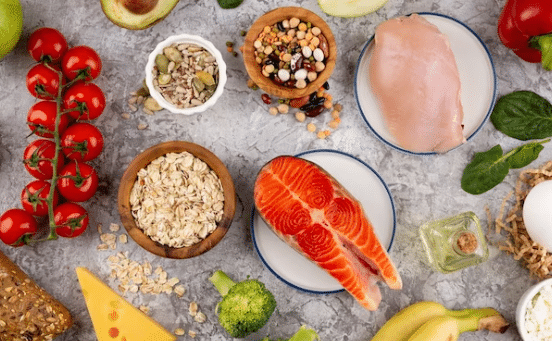The Ultimate Guide to Fighting Inflammation
The Power of Top Anti-Inflammatory Foods and Supplements
Welcome to the ultimate guide to fighting inflammation through the power of food and supplements. Inflammation is a natural response by our body to injuries, infections, or irritants. However, when it becomes chronic, it can lead to several health issues, including diabetes, heart disease, and cancer.
Understanding inflammation and its effects on the body is the first step in fighting it. In this guide, we will discuss the top anti-inflammatory foods and supplements that can help reduce inflammation in the body. By making simple changes to your diet and incorporating supplements into your routine, you can reduce inflammation and improve your overall health.
What is Inflammation?
Inflammation is a process by which the body's immune system responds to any harmful stimuli, such as infections, injuries, or irritants. It is a natural defense mechanism that helps the body heal and protect itself. Acute inflammation is a short-term response that is necessary for the body to recover from an injury or fight an infection.
However, when inflammation persists for a long time, it can lead to chronic inflammation, which can have harmful effects on the body. Chronic inflammation has been linked to various diseases, such as arthritis, diabetes, heart disease, and cancer.
Inflammation can cause pain, redness, swelling, and warmth in the affected area. Chronic inflammation, on the other hand, can be silent, with no visible symptoms, making it difficult to detect. That's why it's crucial to make healthy lifestyle choices and incorporate anti-inflammatory foods and supplements into your diet.
Top Anti-Inflammatory Foods
One of the most effective ways to fight inflammation is through a healthy diet. Incorporating anti-inflammatory foods into your diet can help reduce inflammation in the body and improve your overall health. Here are the top anti-inflammatory foods you should consider adding to your diet:
- Fatty Fish: Fatty fish, such as salmon, mackerel, and sardines, are rich in omega-3 fatty acids, which are known for their anti-inflammatory properties. Omega-3 fatty acids can help reduce inflammation in the body and protect against heart disease, arthritis, and other inflammatory conditions.
- Berries: Berries are packed with antioxidants, which can help reduce inflammation in the body. Blueberries, strawberries, raspberries, and blackberries are all excellent sources of antioxidants and can be easily incorporated into your diet.
- Leafy Greens: Leafy greens, such as kale, spinach, and collard greens, are loaded with vitamins and minerals that can help fight inflammation. They are also rich in antioxidants and fiber, making them an excellent addition to any diet.
- Nuts: Nuts are a great source of healthy fats, protein, and fiber. They are also packed with antioxidants and other anti-inflammatory compounds. Almonds, walnuts, and pistachios are all excellent choices.
- Turmeric: Turmeric is a spice that has been used for centuries for its anti-inflammatory properties. It contains a compound called curcumin, which has been shown to reduce inflammation in the body.
Incorporating these anti-inflammatory foods into your diet can help reduce inflammation and improve your overall health. Try adding them to your meals or snacks to reap their benefits.
Top Anti-Inflammatory Supplements
In addition to incorporating anti-inflammatory foods into your diet, taking supplements can also help reduce inflammation in the body. Here are the top anti-inflammatory supplements you should consider adding to your routine:
- Omega-3 Fatty Acids: Omega-3 fatty acids are essential fats that the body cannot produce on its own. They are known for their anti-inflammatory properties and can help reduce inflammation in the body. You can find omega-3 fatty acids in fish oil supplements, flaxseed oil, and chia seeds.
- Curcumin: Curcumin is a compound found in turmeric that has been shown to have powerful anti-inflammatory effects. It can help reduce inflammation in the body and protect against chronic diseases.
- Ginger: Ginger is a root that has been used for centuries for its medicinal properties. It contains compounds that have anti-inflammatory effects and can help reduce inflammation in the body. You can take ginger supplements or add fresh ginger to your meals and drinks.
- Vitamin D: Vitamin D is an essential vitamin that plays a crucial role in immune function and inflammation. Studies have shown that low levels of vitamin D are associated with increased inflammation in the body. You can get vitamin D from sunlight, food sources, or supplements.
- Magnesium: Magnesium is an essential mineral that is involved in over 300 biochemical reactions in the body. It has been shown to have anti-inflammatory effects and can help reduce inflammation in the body. You can find magnesium supplements in capsule form or in powder form to add to your drinks.
Incorporating these anti-inflammatory supplements into your routine can help reduce inflammation and improve your overall health. However, it's important to consult with your healthcare provider before taking any supplements, especially if you are taking medication or have a medical condition.
Conclusion
Inflammation is a natural response by our body to injuries, infections, or irritants. However, chronic inflammation can lead to several health issues. Incorporating anti-inflammatory foods and supplements into your diet can help reduce inflammation in the body and improve your overall health. We hope this ultimate guide to fighting inflammation has provided you with valuable insights and practical tips to take control of your health.
All Image Attribute - with thanks www.freepik.com

